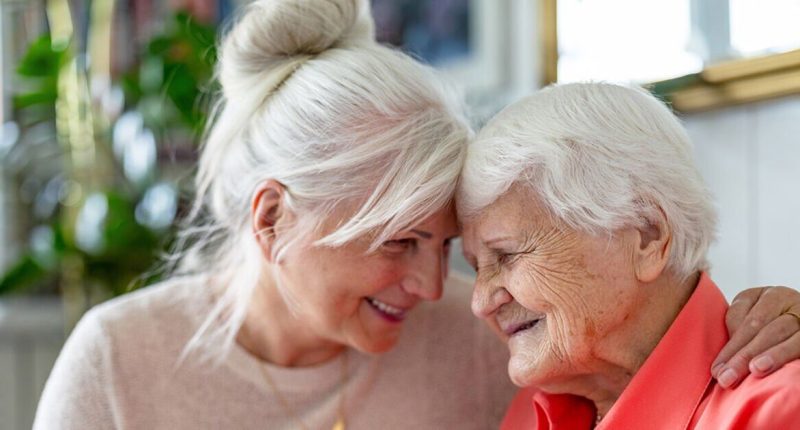Share this @internewscast.com
Dr Hilary lists the early symptoms of dementia
A GP has shared seven “small changes” we can all make to our lifestyles to lower our risk of a devastating condition. Altering our lifestyles in this way could reduce our chances of developing dementia.
Dementia is a syndrome, or a group of associated symptoms, linked to the ongoing decline of the brain. As a result, people can experience memory loss, behavioural changes, and even issues with mobility.
While there are certain factors out of our control that can raise our risk of dementia, such as age and genetics, there are others that we can influence with lifestyle changes.
According to a report published in The Lancet, around 45% of all dementia cases could be prevented by making specific changes.
With this in mind, Doctor Rupa Parmar, GP and medical director of Midland Health, has suggested some small lifestyle changes people can make to reduce their risk of dementia.
READ MORE Daily spoonful of this household ingredient could slash dementia risk

A doctor revealed some of the changes you can make to your lifestyle to lower your risk of dementia (Image: Getty)
Limit alcohol intake
According to Dr Parmar, it’s a “common misconception” that drinking wine can reduce dementia, but excessive alcohol consumption is one of the factors with a direct link to increasing your risk. “Alcohol directly affects brain function, and drinking over the recommended 14 units per week for a long time can shrink the brain areas that help with memory,” he said.
Exercise
Gentle exercise, such as walking or even sitting workouts, is a simple addition to your daily routine that helps reduce your risk of dementia. The NHS recommends we should all take part in at least 150 minutes of moderate exercise a week.
Dr Parmar added: “However, your body isn’t the only thing that needs exercise, and it’s important to regularly work your brain with activities like puzzles and quizzes to stimulate cognitive functions and promote brain health.
“Going outside your comfort zone can create new brain pathways, which can be done by learning something new, like a language or an instrument.”
Protect your vision
Eye conditions such as cataracts and diabetic retinopathy are directly linked to an increased risk of dementia. “So it’s crucial not to neglect your eye health, have regular check-ups, and if you notice any changes in your vision, make an appointment with an optometrist as soon as possible,” she said.

Looking after your eye health is one way to lower your dementia risk (Image: Getty)
Combat loneliness
Isolation and loneliness play a huge part in dementia, as they’re linked to cognitive decline. Dr Parmar suggested: “To combat this, it’s a good idea to regularly schedule visits or phone calls with family and friends, join a local club or activity, or even give time to volunteer with a local group or charity.
“When it comes down to it, it’s important to connect with others, not just to reduce your dementia risk, but to improve your overall well-being.”
Find out about the symptoms you need to watch out for and get health advice with our free health newsletter from the Daily Express
Relax and sleep
Good sleep and relaxation are generally important, but they can also help improve brain function and health. “People with insufficient or disturbed sleep may have a higher risk of developing dementia, so it makes sense to keep a regular sleep schedule, avoid devices before bed, and avoid drinking caffeine late in the day,” she continued.
Eat healthy
Studies have shown that following a Mediterranean could lower the risk of dementia. Dr Parmar said: “It involves swapping red meat for fish, adding wholegrains like pasta or bread to most meals, and eating more berries, legumes, pulses, nuts, and beans. It’s also vital to limit your intake of salt, sugar, alcohol, and processed or fried foods.”
Regular health checks
If you are over 65, Dr Parmar recommends going for a health check allows your GP to identify your specific dementia risk factors and give personalised advice, alongside determining your risks for other conditions like heart disease, type 2 diabetes, or stroke.
She said: “There’s no one way to prevent dementia, but making small changes and committing to a healthy lifestyle, including exercise, a nutritious diet, and frequent socialisation, can help reduce your risk of getting the disease.
“Dementia is a disease that affects the lives of too many people in the UK. Early diagnosis, accessible support, and funding for research will help improve the lives of people with the condition.
“But spreading awareness is also crucial. After all, making sure everyone is informed of the risk factors can help prevent more cases.”

















